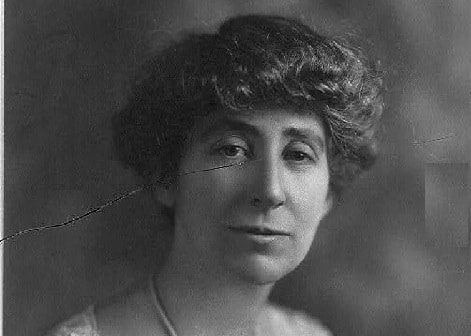Please Note: All words in italics are direct quotes from Jeannette Rankin. The other words are from my research on this historical dynamo or from my imagination. Thank you to Ana Maria Spagna and Laura Pritchett for proposing this in one of their workshops.
As the first woman ever elected to Congress, how were you greeted by your male colleagues when you arrived on the house floor in 1916?
Oh, the men rose to their feet and cheered. I had to rise twice myself and bow to them which, if you can believe the reports, I did “with entire self-possession.” I [was] deeply conscious of the responsibility resting upon me.
Were you surprised at that reaction?
A bit. I really didn’t know what to expect. But you have to remember, this was three years before they passed the Nineteenth Amendment giving the women the right to vote, and four years before it was ratified. I suspect some of them thought I was an aberration. After all, I was from Montana and the West was still considered a pretty unorthodox part of the country.
You were less popular after you voted against entering into World War I.
Yes, I was widely criticized, but I was one of 50 who voted that way, so I was not totally alone, not like when I was the sole dissenting vote against entering World War II. Then I was booed.
You said that you wouldn’t vote to send anyone to war because you yourself could not go to war. Women can now go to war. Would this change how you voted?
Absolutely not. I was, and am, still now, against all wars. You can no more win a war than you can win an earthquake. . .There can be no compromise with war; it cannot be reformed or controlled; cannot be disciplined into decency or codified into common sense. . . We have to get it into our heads once and for all that we cannot settle disputes by eliminating human beings.
Would you change anything if you had another chance?
I would do it all again, but this time I would be nastier.
Would you say you are a feminist?
I would definitely be on the front lines, and very proud to take a place beside Nancy Pelosi.
Are you pleased that so many women were just elected to Congress in 2018?
When I was elected I said, I may be the first woman member of Congress, but I won’t be the last.” But, what the hell! I thought we would have reached parity by now. I understand that, depending on current analysis, it could take another 75 to 100 years to reach parity. Men and women are like right and left hands; it doesn’t make sense not to use both. We’re half the people; we should be half the Congress.


Gosh, this makes Jeanette
Rankin so real. So many names of people in history are just names without real flesh and voice. I loved it. Thank you!